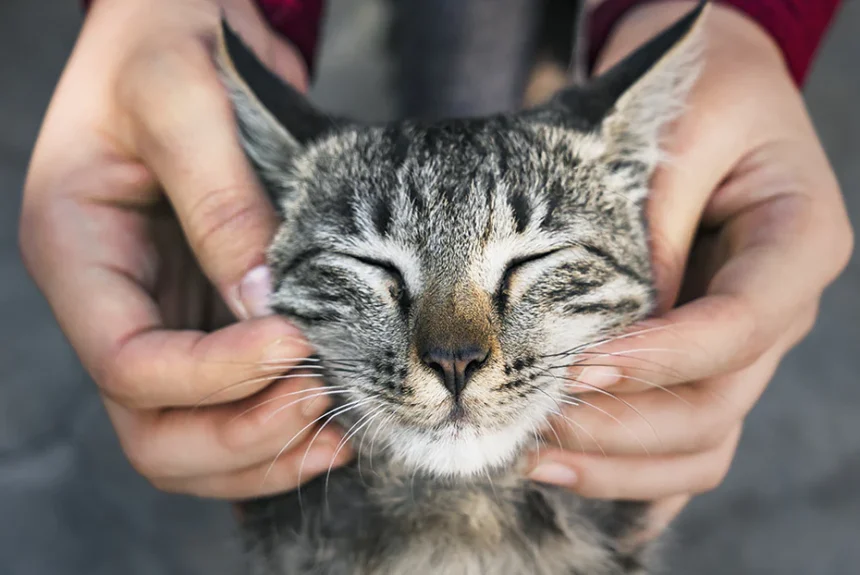Cats have a way of letting you know when something’s off. Maybe she’s skipping meals, hiding under the bed, or suddenly ignoring her favorite sunny spot. When your feline isn’t feeling her best, you can’t just ask her what’s wrong, you have to play detective, caretaker, and comforter all at once. Helping her recover isn’t just about the right medicine or food. It’s about understanding her mind and body, spotting small changes early, and making her environment feel safe enough for her to heal. Let’s explore six ways to support your cat when she’s on the mend, whether she’s bouncing back from an illness, nursing an injury, or simply not acting like herself.
Pay Attention to Her Mental Well-Being
Physical health isn’t the only thing that matters when your cat is feeling unwell. Stress, boredom, or a sudden change in routine can have a major impact on cat mental health. A cat that’s anxious or depressed might withdraw, overgroom, or lose interest in play, which can slow recovery from physical issues.
Supporting her mind is as important as treating her body. That could mean giving her a quiet space away from household noise, keeping her favorite blanket nearby, or making time for gentle interaction if she’s up for it. Even small acts like speaking softly when you enter the room or letting her come to you rather than picking her up can lower her stress levels.
Treat Injuries With Care and Consistency
When a cat gets hurt, her instinct is often to hide the problem. A limp, a refusal to jump, or even just a subtle change in posture can signal pain. The key is to spot these clues early and act before the injury worsens. Clean wounds promptly and keep an eye out for redness, swelling, or discharge. Using high-quality cat wound care products can help speed healing, reduce infection risk, and make the process less stressful for both of you.
These products are designed to be gentle on feline skin while still being effective at cleaning and protecting the area. Once you’ve treated the wound, follow through with regular checks and keep her from licking or scratching at it.
Watch Her Eating and Drinking Habits Closely
Changes in appetite or water intake are often the first signs that something’s wrong. If your cat suddenly turns away from her food or starts drinking far more or less than usual, it’s worth paying attention. Illness, pain, or stress can all affect eating habits, and the longer she goes without proper nutrition, the harder recovery becomes. You might need to warm up her wet food to make it more aromatic, offer smaller meals more often, or try a different protein source if her stomach is upset. Keep her water fresh and accessible, and consider adding a fountain if she’s more interested in running water. Cats can be surprisingly particular, and sometimes small adjustments make all the difference in getting them to eat and drink enough to regain their strength.
Make Her Environment Comfortable
When your cat is unwell, her surroundings can either help her heal or slow her down. A warm, quiet spot that’s away from drafts and noise can encourage rest. If she’s struggling to jump, make sure food, water, and a litter box are within easy reach. A soft bed or folded blanket can provide extra comfort for sore joints or tired muscles. Lighting matters too as some cats prefer dim spaces when they don’t feel well, while others rest better in natural daylight. Pay attention to her preferences and adapt the space accordingly. Comfort isn’t just about luxury; it’s about removing obstacles so she can focus her energy on recovery instead of on navigating a difficult environment.
Keep Her Grooming Routine Gentle but Consistent
A sick or injured cat may not groom herself as thoroughly as usual. While it’s important not to overwhelm her, light grooming can keep her more comfortable and prevent mats or skin irritation. Use a soft brush and short sessions so she doesn’t get stressed. Focus on areas she can’t easily reach, like her back or hindquarters. Grooming isn’t just about cleanliness, it’s also a way to check for new lumps, bumps, or tender spots that might need attention. If she normally enjoys grooming time, the familiar sensation can also be soothing, helping her feel cared for during a difficult time.
Know When to Call the Vet
It’s tempting to wait and see if your cat improves on her own, but cats are experts at hiding discomfort. If she’s not eating for more than a day, is breathing differently, or shows sudden changes in behavior, it’s time to get a professional opinion.
Your observations can be a huge help to the vet, so keep track of when symptoms started, any changes in appetite, and what you’ve tried at home. Sometimes quick intervention can prevent a small issue from turning into a long recovery. The more you know your cat’s normal habits, the faster you’ll recognize when something’s truly off.






